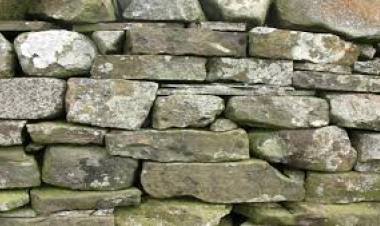Bathsheba: The Jewish Rabbis Perspective II
Although God pardoned David for his sin with Bathsheba, people did not forget the matter, and it continued to haunt David, Bathsheba and their son Solomon all their lives.
As for David, the midrash relates that when the four court-imposed types of execution were discussed in the Beit Midrash (house of study), the sages would interrupt their study and ask David: “What is the penalty for adultery?” to which he would reply: “The adulterer is punished by strangulation, and he has a portion in the World to Come, but those who shame their fellow have no portion in the World to Come” (BT Sanhedrin 107a).
David thereby alluded that when they publicly embarrassed and reminded him of his transgression, they sinned much graver than his. Bathsheba, along with David, was also a subject of slander. When David fled to Jerusalem after his son Absalom’s revolt, Bathsheba’s carriage preceded him. Shimei, son of Gera, witnessed this and “insulted [David] outrageously [nimrezet]” (I Kings 2:8).
The Rabbis learn of the content of this curse from the word “nimrezet,” which they understand as an acrostic for all the curses that Shimei directed at David: no’ef (adulterer, for having taken Bathsheba); Moavi (Moabite, as a descendant of Ruth); rozeah (murderer, for killing Uriah); zorer (oppressor, for causing the deaths of Israelites); to’evah (abomination). A large portion of these curses describe the sins David committed in his taking of Bathsheba (Midrash Tehillim 3:3). Speaking of Solomon’s difficulties ensuing from his origins, the midrash notes that he completed the labour of building the Temple on the first day of Marheshvan (I Kings 6:38).
Despite the fact that all of the work was finished, the Temple remained locked for an additional twelve months. Everyone slandered Solomon, saying: “Is he not the son of Bathsheba? How can God have His Shekhinah rest within his handiwork?” God, however, delayed the opening of the gates since he thought to include the rejoicing of the Temple in the month of Ethanim, that is, the month of Tishrei (I Kings 8:2), in which Abraham had been born. Once the Temple was opened in the month of holidays, the sacrifices were offered, and the fire descended;
God said, “Now the labour has been completed” (Pesikta Rabbati [ed. Friedmann (Ish-Shalom)], para. 6). According to another tradition, when Solomon built the Temple, he sought to bring the Ark into the Holy of Holies, but the gates stuck to each other and he could not open them. He uttered twenty-four psalms, but his prayer was not answered. He said [Ps. 24: 7]: “O gates, lift up your heads! Up high, you everlasting doors, so the King of glory may come in!” but he was not answered. He then said [v. 9]: “O gates, lift up your heads! Lift them up, you everlasting doors, so the King of glory may come in!” but he was not answered. Once, he mentioned his father’s name and said [II Chron. 6:42]: “O Lord God, do not reject Your anointed one; remember the loyalty of Your servant David,” he was immediately answered. At that moment, the faces of David’s enemies turned as black as the bottom of a pot, and all Israel knew that God had pardoned him for that sin (BT Sanhedrin 107a-b). Bathsheba and the Aged David When David was old and advanced in years, he was served by a beautiful young maiden named Abishag the Shunammite, whose task was to lie in his bosom and warm him, but the king was not intimate with her (I Kings 1:1–4). The midrash explains that Abishag was unwilling to remain in the problematic status of a maiden who was together with the king. Still, without being wed to him, she demanded that David marry her. David refused, claiming that the king may not have many wives. Abishag did not accept this response and countered the king’s argument with the saying: “When the thief has nothing to steal, he becomes peace-loving.” In other words, you are old, and your vigour has waned, so you claim that I am forbidden to you. Abishag thereby alluded to the episode with Bathsheba, in which David did not hesitate to transgress the laws of the Torah by engaging in intercourse with a married woman and causing her husband’s death. Now, however, when his desire has lessened, he presents himself as the guardian of the Torah’s laws.
In order to prove to Abishag that this is not the case, David summons Bathsheba to him in Abishag’s presence and shows her that he is still sexually potent. The Rabbis relate that “at that time Bathsheba dried herself with thirteen cloths,” that is, they engaged in intercourse thirteen times, corresponding to the number of Hebrew words in I Kings 1:15: “So Bathsheba went into the king in his chamber. The king was very old, and Abishag the Shunammite was waiting on the king.” David thus showed Abishag that the main reason for his refusal was his observance of the limits imposed on Kings.
Bathsheba, Solomon’s Mother.
When Nathan the prophet told David of the future birth of Solomon, he said (I Chron. 22:9): “But you will have a son,” with “you will have” implying: “as a remedy for your sin” (Midrash Tehillim 4:2). According to the Midrash, Solomon’s birth constituted how the Lord informed David that his sin with Bathsheba had been forgiven, for Solomon—the son of Bathsheba—was chosen to rule after David (Jerusalem Talmud Ta’anit 2:10, 65d). Bathsheba was the daughter of Eliam (II Sam. 11:3), whom the Rabbis identify with Eliam, son of Ahitophel (II Sam. 23:34); consequently, Bathsheba was the granddaughter of Ahitophel (BT Sanhedrin 69b).
When Ahitophel saw leprosy breaking out on his sexual organ, he thought that he would be king (and therefore joined Absalom in his revolt against David). Ahitophel, however, misinterpreted what he saw, which actually symbolised his granddaughter Bathsheba’s giving birth to Solomon, who would rule all of Israel (BT Sanhedrin 101b). Bathsheba retained her special standing after David’s death, as well. In the midrashic account of Solomon’s judgment of the harlots, Bathsheba sat to his left, and Ruth to his right (Sifrei Zuta on Numbers, 10:29). These two saw Solomon at his best when he judged with wisdom, following which all the people acknowledged his wisdom and rule. (For the judgment of Solomon, see the entry: Two Prostitutes as Mothers). As the midrash relates, Bathsheba continued to educate her son Solomon even after he became king. When he celebrated the inauguration of the Temple, he also celebrated his marriage to the daughter of Pharaoh. That night, Solomon imbibed a great quantity of wine and enjoyed eighty (or three hundred) different dances before him by the daughter of Pharaoh. The following day, he was supposed to open the gates of the Temple, but he slept until the fourth hour of the day, and the keys were under his head. His mother came and chastised him (Lev. Rabbah 12:5). The content of her reproof was based on Prov. 31:1–9, the heading of which is: “The words of Lemuel, king of Massa, with which his mother admonished him.” Since the Book of Proverbs is attributed to Solomon, the Rabbis understood King Lemuel to be Solomon, and these verses describe the reproach by Bathsheba, Solomon’s mother. One exegetical approach understands the words “with which his mother admonished him” [yisrato, literally, tortured him]” According to this interpretation, Bathsheba tied Solomon to a pole to have him whipped because of his drinking to excess (BT Sanhedrin 70b). According to another tradition, she took her shoes and slapped him with them here and there (Lev. Rabbah 12:5). Another hermeneutical approach has her verbally reproaching him. She said to him [Prov. 31:2]: “No, my son! No, O son of my womb! No, O son of my vows!” “My son”—everyone knows that your father was God-fearing; now they will say that it was your mother who caused him to sin. Then she added: “O son of my womb”—all of the women in your father’s house did not see the king again after they became pregnant. I, however, pushed my way in so that he would have relations with me during my pregnancy, and I had a son who is vigorous and fair-skinned [since intercourse at the end of pregnancy is beneficial for the fetus and produces a better child].
She then said: “O son of my vows”—all the women of your father’s house took vows that they would bear a son worthy of becoming king. I, however, took vows that I would have a vigorous son, one filled with Torah and fit for prophecy (BT Sanhedrin 70b). In another tradition, she tells him: “Your father married many women, and when Nathan the prophet came and informed him that one of his sons, who would be named Solomon, would inherit his kingdom, each of the wives said: ‘If I give birth to Solomon, I will offer all the sacrifices in the Torah.’ I, too, took such a vow, and now I stand with my sacrifices in my hand, and you sleep? ‘Do not give your strength to women, your vigour to those who destroy kings’ [Prov. 31:3]. My son, those of the Flood generation were kings, but because they were steeped in licentiousness, they were expunged from the world” (Lev. Rabbah 12:5). She told him [Prov. 31:4]: “Wine is not for kings, O Lemuel; not for kings to drink”—what have you to do with kings who drink wine, become intoxicated, and say: “What need have we of God?” “Nor any strong drink for princes” [ibid.]—you, to whom all the secrets of the world are revealed, you drink wine and become intoxicated?
According to another interpretation, she told him: You, to whom all the princes of the world come, you drink wine and become intoxicated? The Midrash states that in the end, Solomon took his mother’s words to heart, and when he wrote the Book of Proverbs (30:2), he admitted the error of his excessive drinking.
Another exegesis maintains that Solomon became the wisest of men because Bathsheba reproached and taught him how a king should conduct himself. In her old age, Bathsheba continued to fill her role as the mother and educator of her children. Even when her son already sits on the throne, she does not spare him her criticism and guides him in the behaviour befitting his station. These midrashim illustrate how far Bathsheba had come: from the wife of an army officer (Uriah), she had become the queen, who comported herself with honour and nobility. She had become cognizant of the trappings and pomp of royalty among the world's peoples and knew where their unbridled behaviour led. Even as queen, she did not forget that she was subservient to God’s laws, a message she sought to transmit to Solomon. Solomon owed his impressive achievements to the education he received from Bathsheba, and his wisdom and knowledge were renowned throughout the world. PS: This is the concluding part of the story of Bathsheba from the Jewish Rabbis' perspective. Learn about the richness and grace and the power of forgiveness.
We are studying to show ourselves approved.
-GSW-
April 1, 2024
















Comments (0)
Facebook Comments (0)